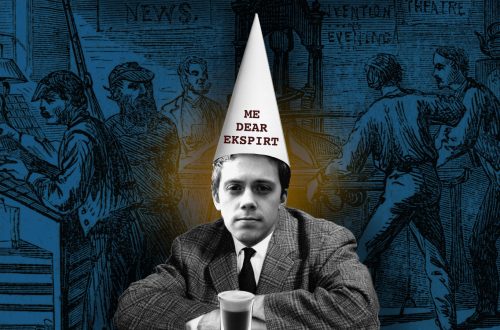Guest post by Andrew Murphy
Reading Christopher Hitchens’s Slate column on the passing of Lezek Kolakowski helped shake off some old cobwebs. Kolakowski’s book Main Currents of Marxism did more to kick in the doors of the wretched Soviet Union than given credit for.
It was Kolakowski’s moral integrity and opposition which helped give life and hope to the Polish Solidarity movement. As Adam Michnik said on his death, “”For decades he has been the symbol and moral authority of a Poland that is spiritually sovereign, that defies enslavement, of a Poland of free thought and unbending soul.”
But while Hitchens and others focus on Kolakoski’s contribution to the critique of Marxism, very little has been written about Kolakowski’s famous conversation with British Marxist historian E.P. Thompson in the pages of Socialist Register in the early 1970s.
Kolakowski by the early 1970s had given up any attempts to reconcile humanism with Marxism, and E.P. Thompson, in a 100-page essay, tried in vain to get Kolakowski to come back to the fold. Thompson, a brilliant historian and dean of the Marxist humanist tradition, certainly shared Kolakowski’s disdain for the ’68 radicals and the Stalinism of Louis Atlhusser. However, the response (pdf) Thompson got from Kolakowski was one of the most brilliant responses to Marxism ever written.
Thompson wrote, “To a historian, fifty years is too short a time in which to judge a new social system, if such a system is arising.” Kolakowski points out that one would search in vain for a “human face” of communism and lists for Thompson all the crimes of Lenin and Stalin from 1917 from 1946. He tells Thompson, “Certainly I could ask you how many years you needed to access the merits of the new military regime in Chile and Greece,” referring to the Pinochet regime and the Greek Colonels.
The great Polish intellectual had no time for phony moral equivalance, and shared with Thompson an experience in Latin America when he confronted a radical who told him how much he hated torture, but had come to find the radical only had a problem with CIA-trained torturers. This self-deluded radical had no problem with the Castro regime torturing people since they “have to use all means of self-defense, however regrettable.”
Thompson wrote he wanted a world where:
…..money values give way before the “life values” or (as Blake would have it) “corporeal” will give way to the “mental” war. With sources of power easily available, some men and women might choose to live in unified committees, sited, like Cistercian monasteries, in centres of great natural beauty, where agricultural, industrial and intellectual pursuits might be combined.
Good luck with that. Kolakowski thought we should deal with man as he is, not in some utopian dissent world that will never exist. His reply was:
We do not know how to harmonize the contradictory tasks contemporary society imposes upon us. We can only try to reach out to an uncertain balance between tasks because we have no blueprint for conflictless and secure society.
Also:
The idea that the whole theory of communism may be summed up by the single phrase “abolition of private property” was not invented by Stalin…The point is that Marx really did consistently believe that human society would not be “liberated” without achieving unity. And there is no known technique apart from despotism whereby the unity of society can be achieved.
In 1977 Rudolf Bahro would put a stake in the heart of communism with his book The Alternative in Eastern Europe, which dealt with many of the same concerns posed by Kolakowski:
The abolition of private property in the means of production has in no way meant their immediate transformation into the property of the people. Rather, the whole society stands property-less against its state machine.
As Hitchens noted, Kolakowski would ended up being an intellectual leader of a working class movement. The Polish Solidarity movement would come to power not because of Thompson’s Eurocommunism, but from a mixture of democratic socialists, liberals, Catholics and apolitical trade unionists. Neither should the efforts of the American trade union federation the AFL-CIO on behalf of Solidarity in Poland be forgotten.
Kolakowski stands in a rich tradition of the anti-totalitarian Left: men like George Orwell, Albert Camus, Adam Michnik, Marceau Pivert, Sidney Hook, Ignazio Silone, Arthur Koestler, Norberto Bobbio and others.
His final salvo to Thompson, speaks for itself:
I hope to have explained to you, why, for many years, I have not expected anything from attempts to mend, to renovate, to clean or to correct the communist idea.


